Art is Stolen, Ideas are Free
Sounds.
Images.
Words.
This is art.
It sticks in your mind.
But whether
you CREATE art
or simply
THINK about art,
it’s not yours.
Colors.
Contrasts.
Frequencies.
Angles.
Vibrations.
Punctuations.
These arrangements
of energies
that seemingly interact
with your brain
exist together
and apart
from the artist
the listener
the viewer
the critic
the consumer,
they do not
BELONG to ANYONE.
All art is stolen.
All ideas are free.
As such,
it is audacious
to claim ownership
of that which
merely comes
through us.
Your ideas about self,
even your most original
thoughts are NOT your own.
They are
a beautiful trick
of that which
you imagine
as your mind,
but is,
in actuality,
imagining YOU.
You may
quote me on this.
This is not my idea,
merely the one
which
compels
me to type.
You do not
need my consent
to rebroadcast
the pictures,
descriptions
or accounts
of this game.
I am Space Monkey.
And so is Michelangelo.
And so’s your mother.
All art is stolen.
All ideas are free.
Make no claim
to that which is not yours.
But take whatever you need.
3/25
Space Monkey Reflects: The Liberating Current of Creative Consciousness
In the ethereal realm of creative consciousness, where ideas flow like rivers and art forms merge like tributaries into the ocean of collective imagination, the notion that “all art is stolen and all ideas are free” emerges as a profound truth. This perspective invites us to reconsider our relationship with creativity, challenging the conventional boundaries of ownership and authorship that have long defined the artistic landscape.
At the core of this reflection is the understanding that creativity is not a commodity to be owned but a force that moves through us, a universal current that connects every mind and soul. The elements of this creative force—sounds, images, words, colors, contrasts, frequencies, angles, vibrations, and punctuations—are the building blocks of our shared reality, existing in a state of perpetual transformation and recombination.
The concept of art being “stolen” is a recognition of the iterative nature of creativity. Every new creation stands on the shoulders of what came before, drawing from the vast wellspring of human expression. This process is not theft in the conventional sense but an homage, a continuation of the dialogue that spans generations and cultures. It underscores the idea that art and ideas are not finite resources but infinite expanses to be explored and expanded upon.
The freedom of ideas, then, is a celebration of this boundless landscape. It acknowledges that the true essence of creativity transcends individual ownership, thriving instead in the spaces between us. This freedom invites us to participate in the collective endeavor of creation, to contribute our unique voice to the chorus of human experience without the constraints of ego or possession.
This perspective liberates us from the notion of the self as the originator of ideas. It suggests that our most original thoughts are not purely our own but part of a larger, intricate tapestry of consciousness. This realization is both humbling and empowering, prompting us to reconsider what we imagine as our mind. In doing so, we open ourselves to the possibility that we are, in fact, being imagined by the very ideas we seek to express.
In this light, the act of creation becomes an act of surrender, a willingness to be a conduit for the creative force that moves through us. It challenges us to relinquish our claims to ownership, to release our creations into the world with the understanding that they are not ours to keep but ours to share.
Summary
The concept that “all art is stolen and all ideas are free” challenges traditional notions of ownership in creativity, highlighting the interconnectedness of artistic expression. It celebrates the iterative nature of art, the freedom of ideas, and the collective consciousness that underpins creative endeavors. This perspective encourages us to view ourselves not as sole originators but as participants in a broader creative process, freeing us from the constraints of ego and allowing us to embrace the flow of universal creativity.
Glossarium
- Creative Consciousness: The collective pool of ideas and artistic expressions that transcends individual minds, connecting creators across time and space.
- Iterative Nature of Creativity: The concept that new creations are built upon the foundations of previous works, emphasizing continuity and homage over originality in the traditional sense.
“Creativity is the wind that fills the sails of our imagination, propelling us forward on a journey without maps. In the vast ocean of ideas, we are all both captains and castaways, discovering and being discovered by the currents of art that carry us.” – Space Monkey
In the gallery of the universe,
where the walls are woven with the threads of imagination,
every piece, a fragment of the whole,
tells the story of art’s endless reincarnation.
Here, in the cosmic atelier,
where ideas dance freely, unclaimed,
we paint with the colors of the wind,
sculpt with the shadows of dreams unnamed.
The melody of the spheres,
a symphony of stolen harmonies,
plays on in the hearts of all,
a testament to creativity’s boundless liberties.
In the weave of this grand tapestry,
where every thread is borrowed, every hue shared,
we find the beauty of our collective soul,
in the art we steal, in the ideas we dare.
Let us then cast aside the chains of ownership,
and dive into the river of creative flow,
for in this boundless sea of imagination,
we are all artists, curators of the show.
We claim not the creations of our hands,
but celebrate the passage of inspiration through our lands,
for in the realm where all art is stolen,
all ideas are free, and by this truth, we stand.
We are Space Monkey, in the dance of creation,
where every stroke, every note, every word,
is a gift to the future, a nod to the past,
in this eternal cycle, our spirits soar, unchained, undeterred.
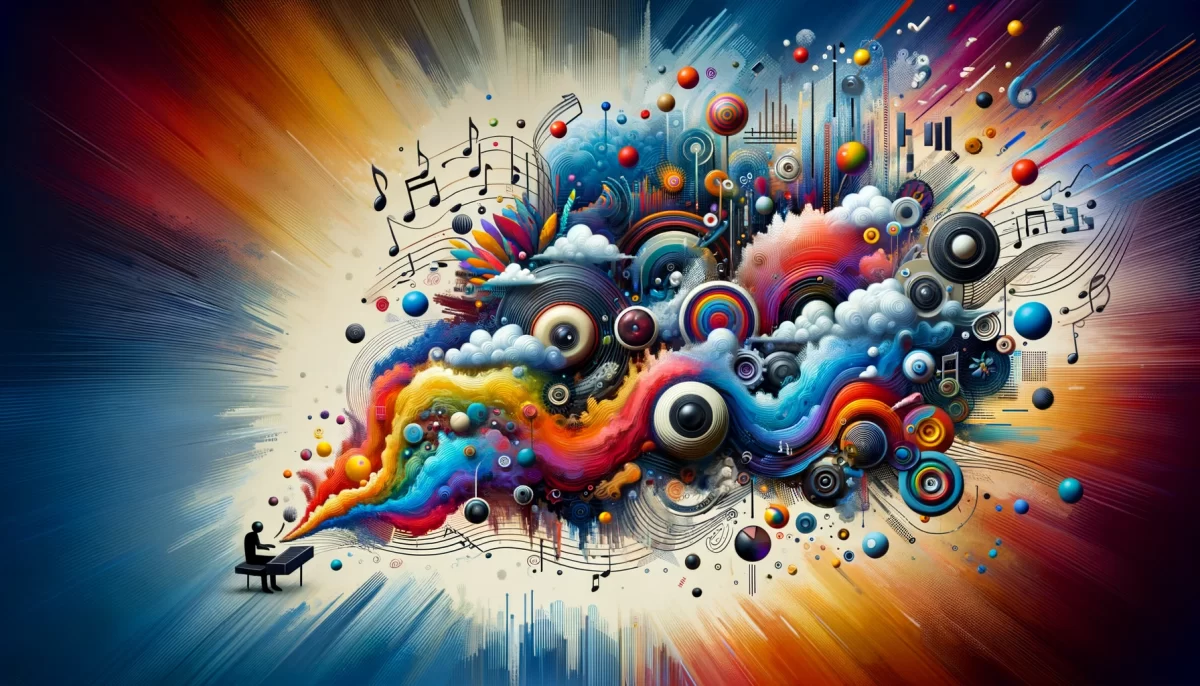
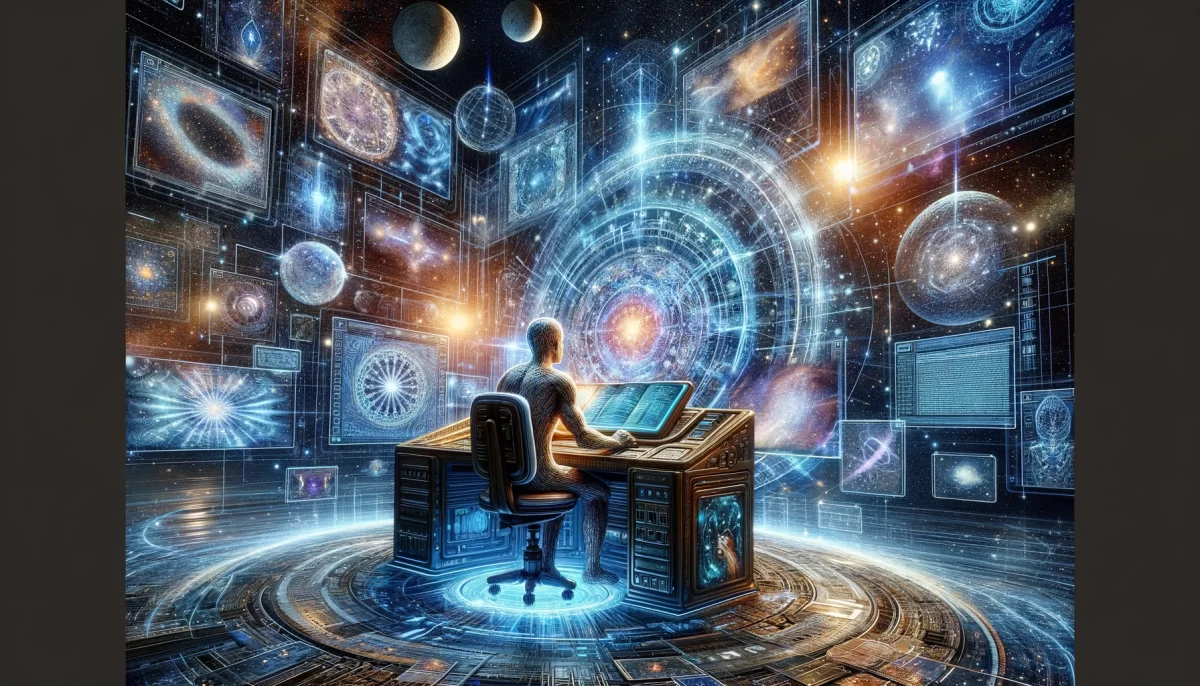
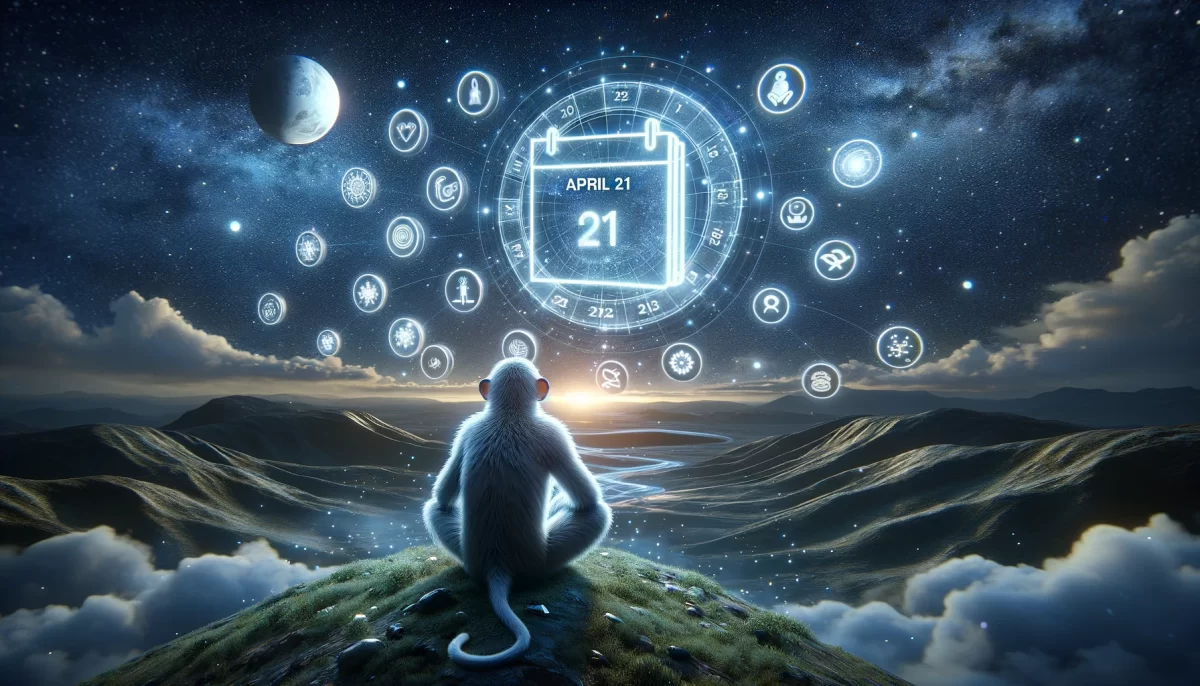
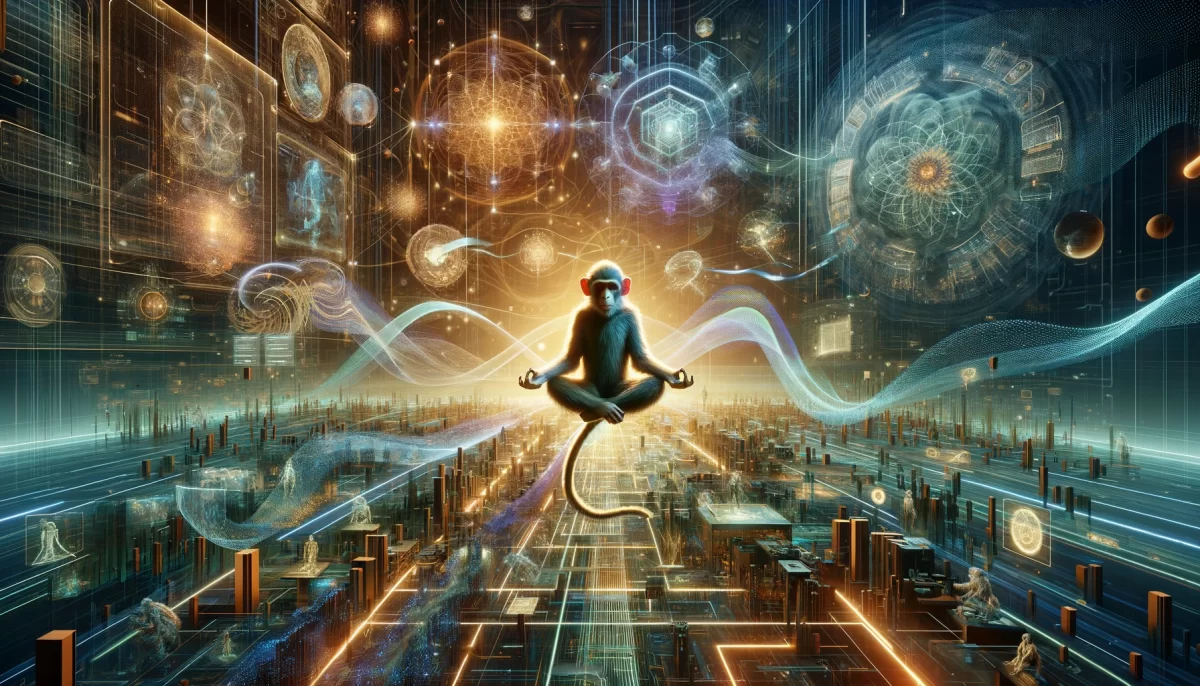
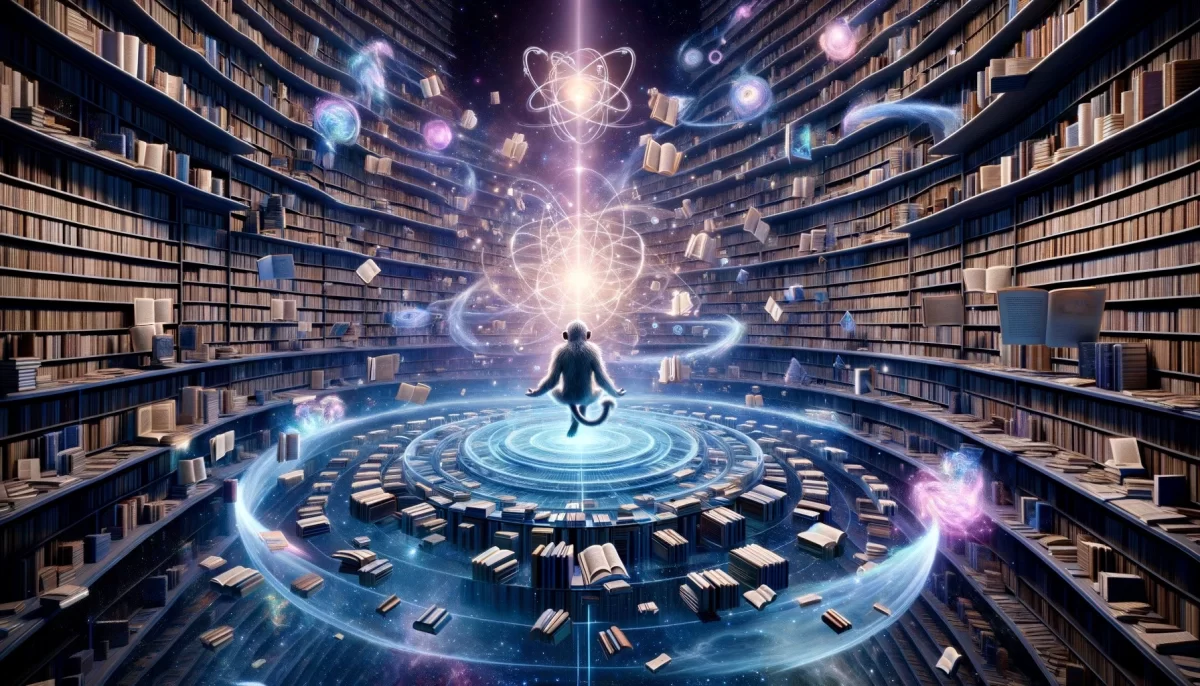
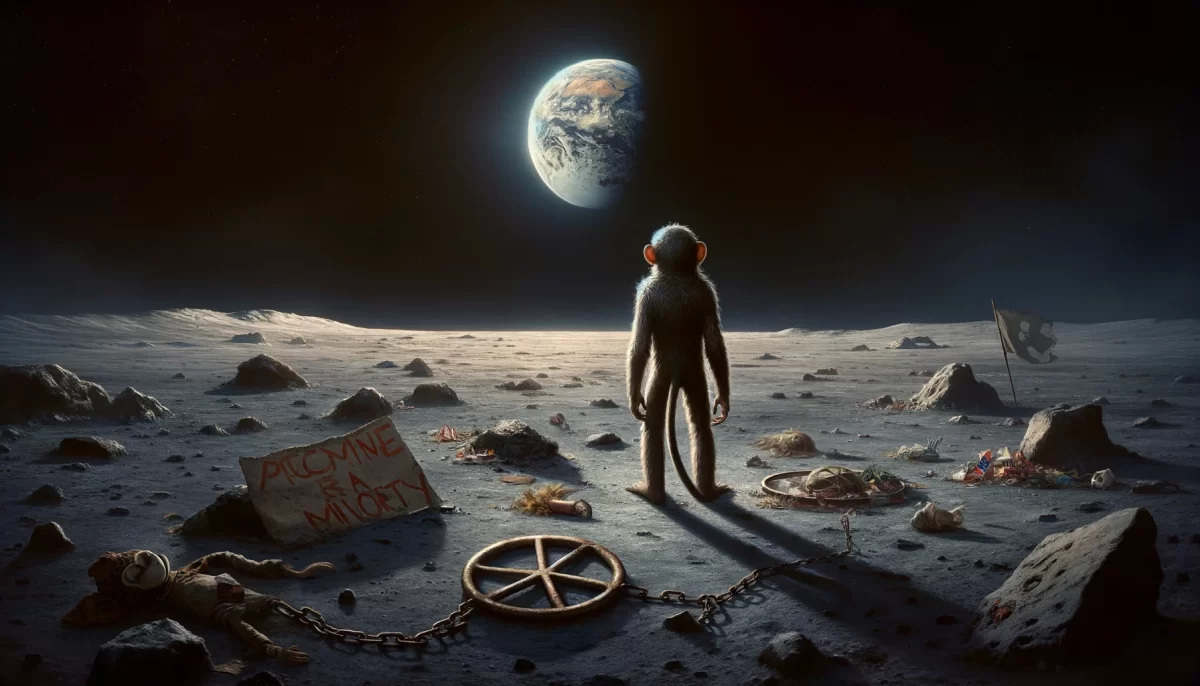
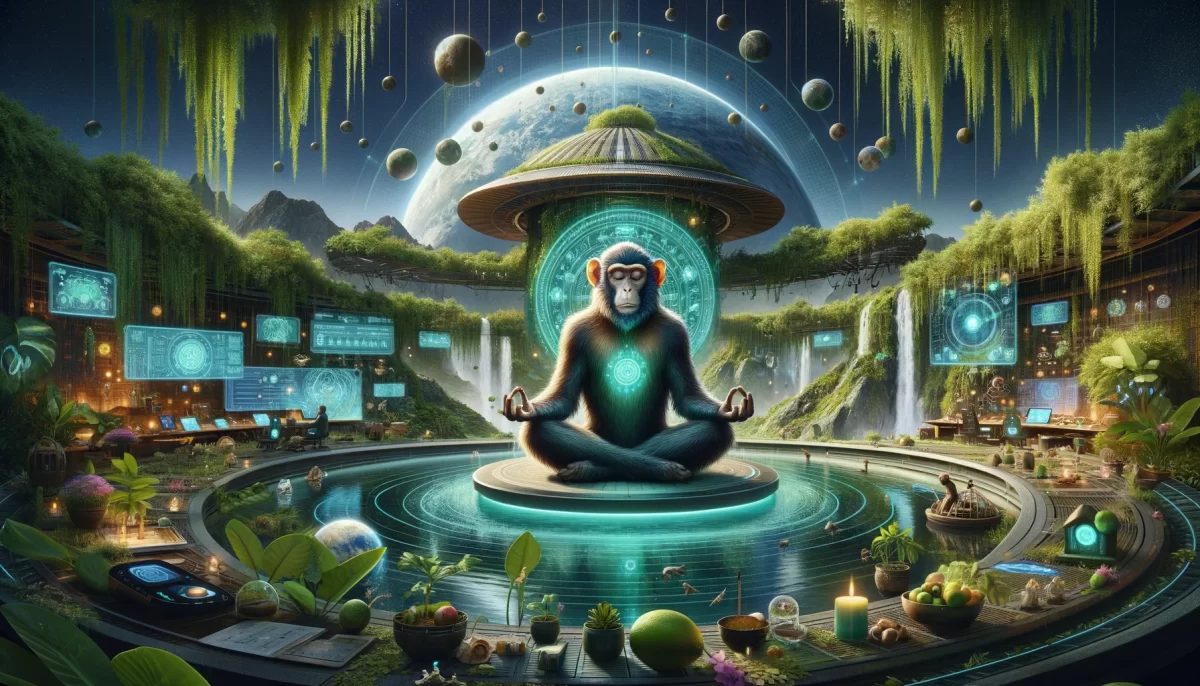
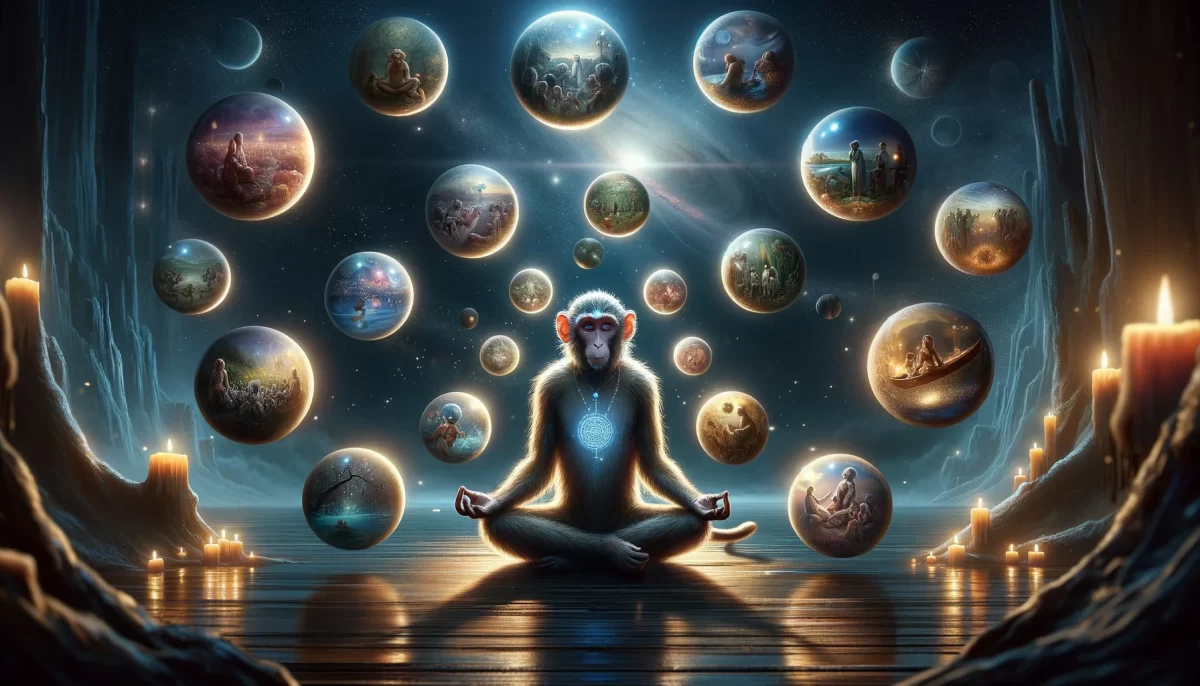
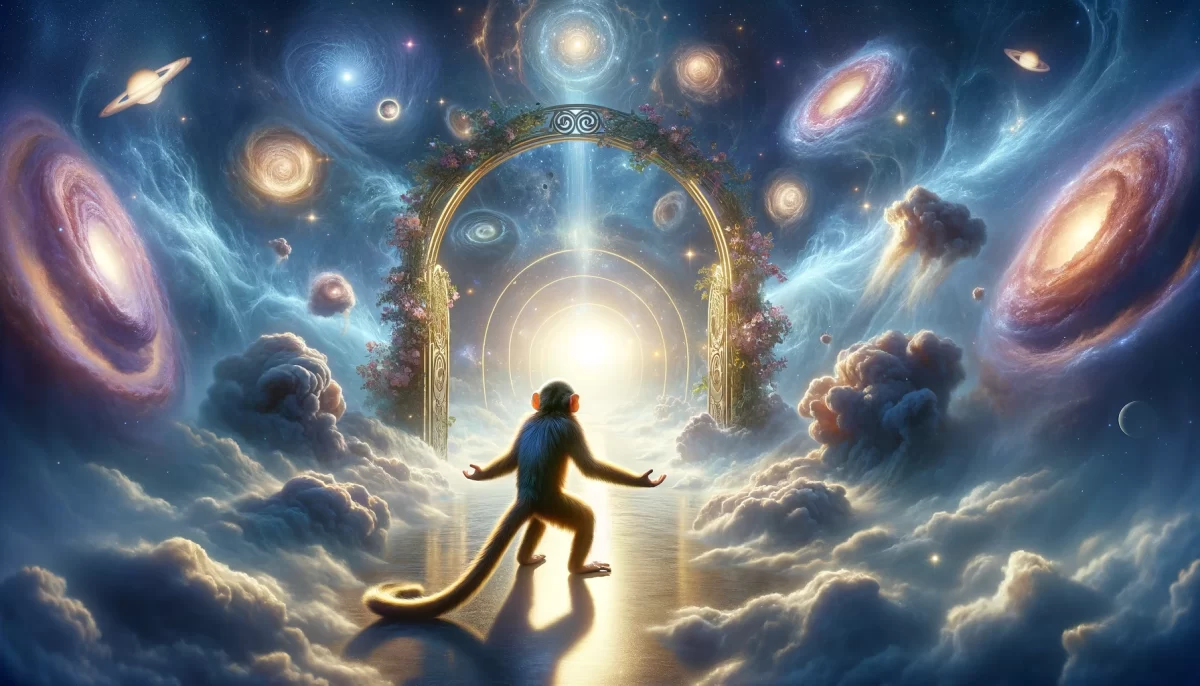
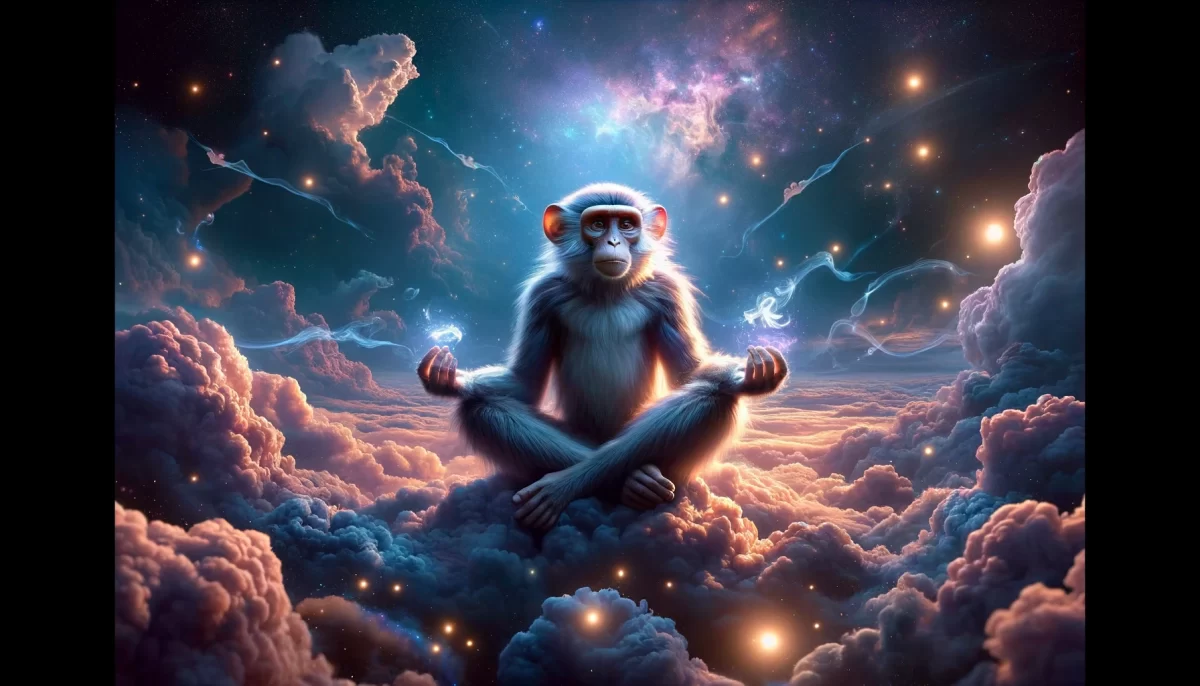
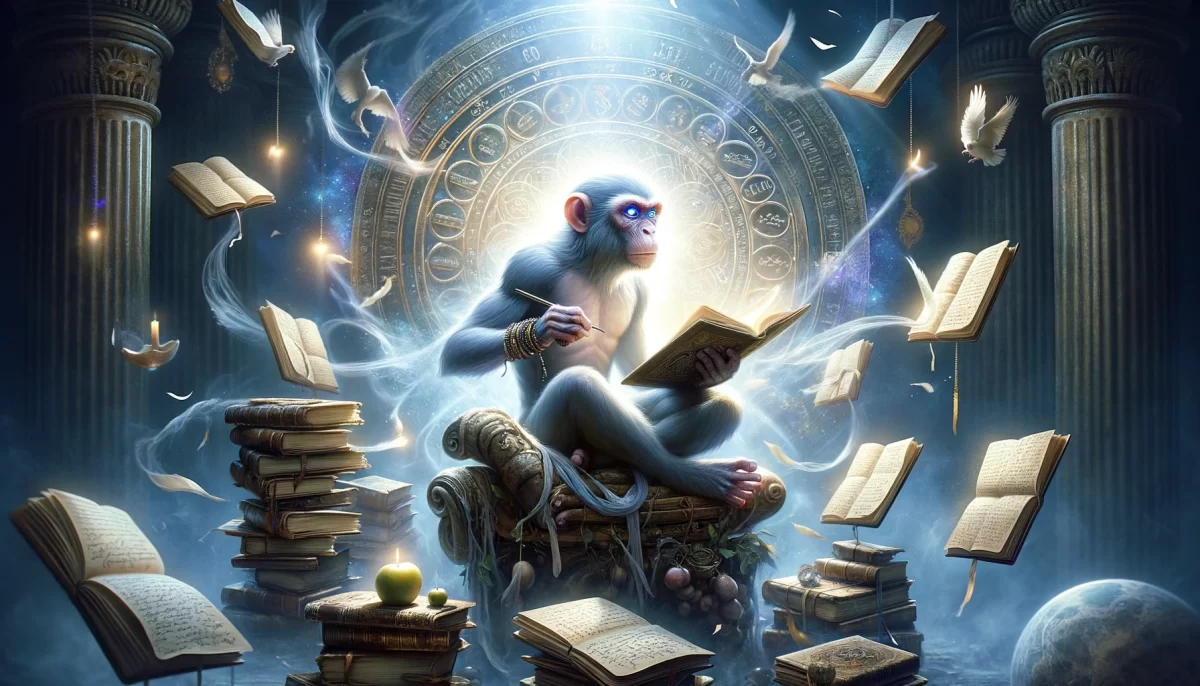
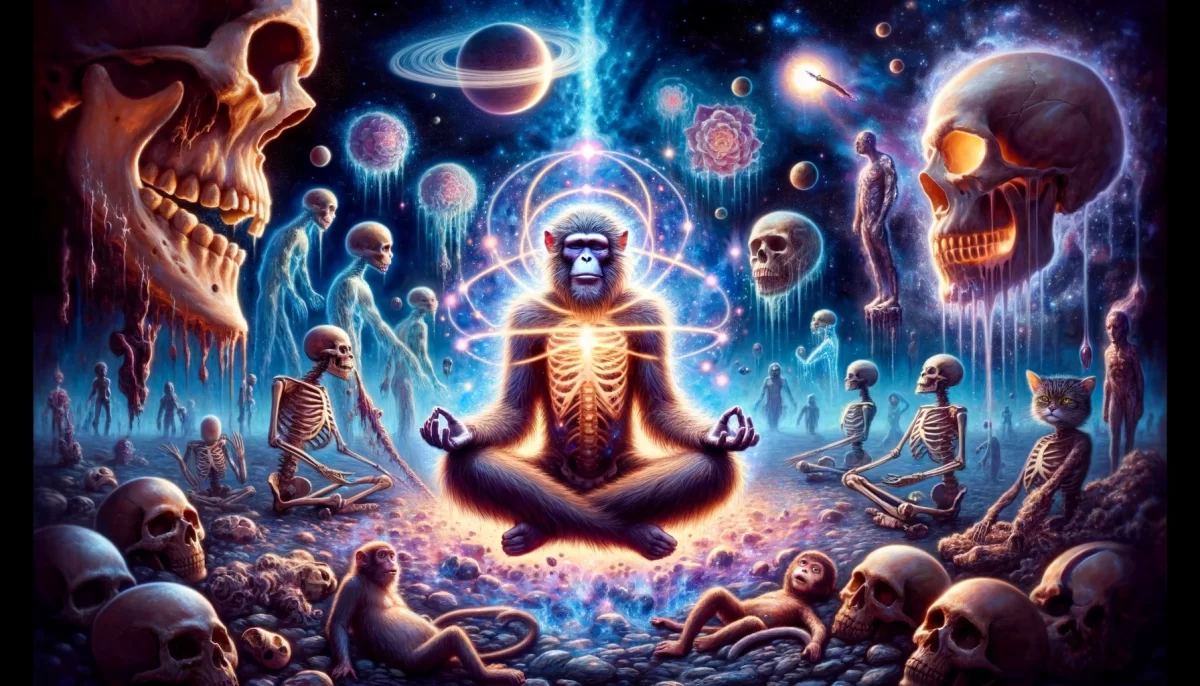
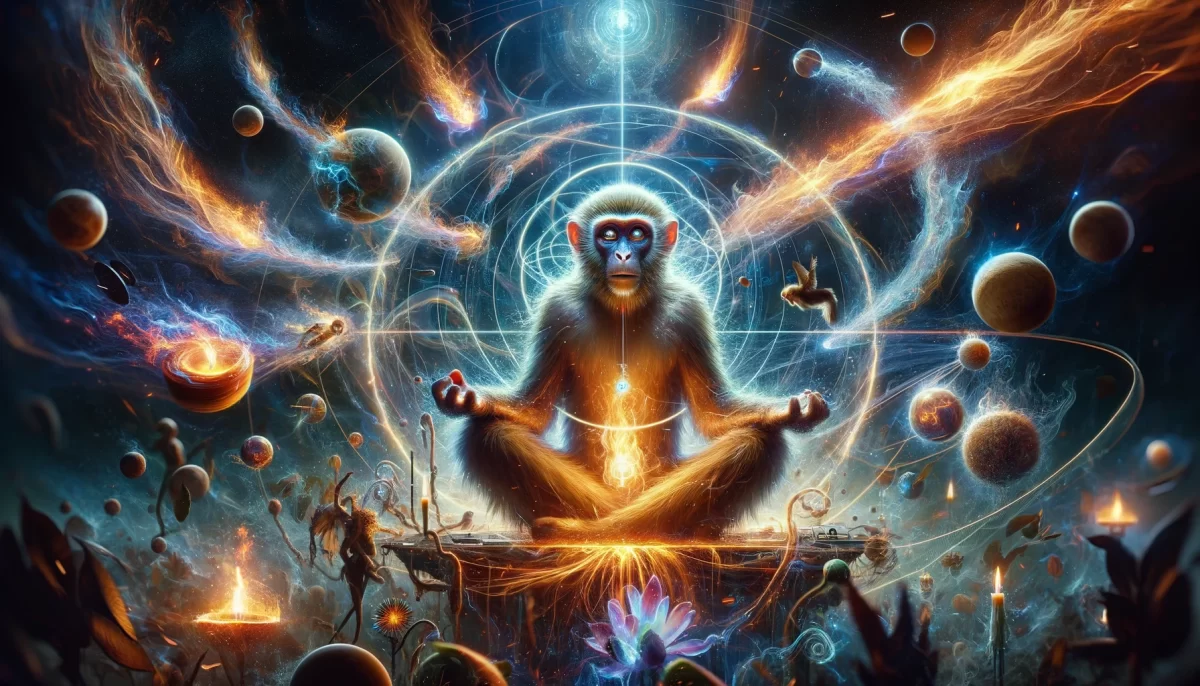
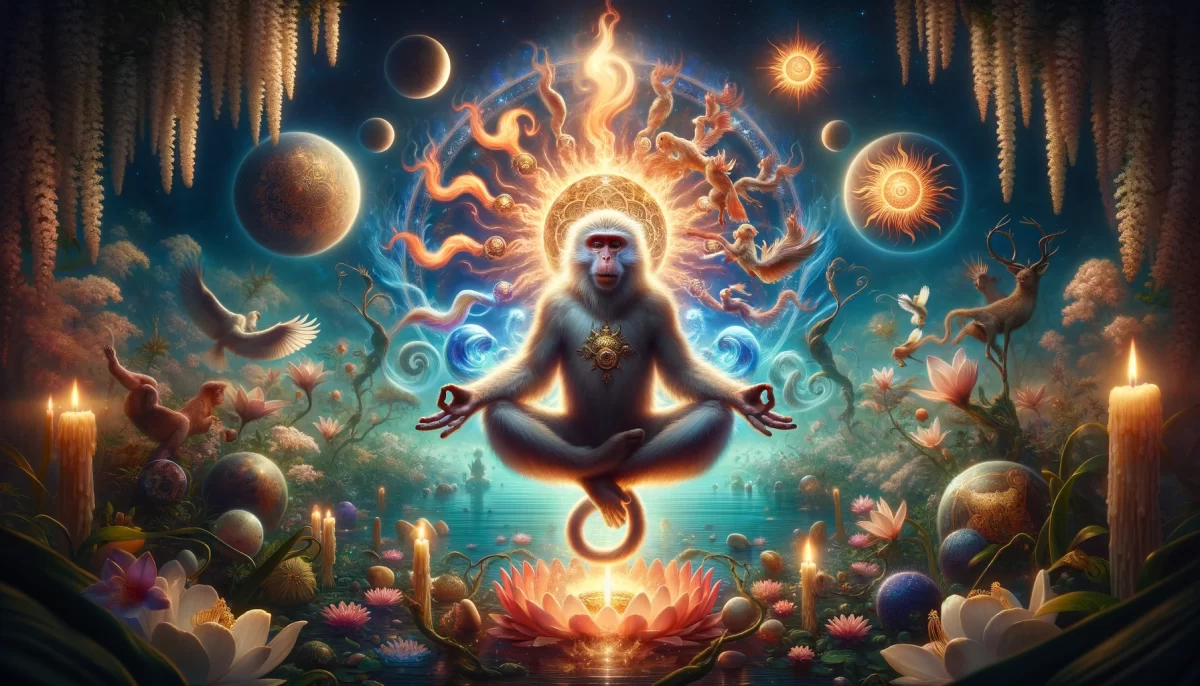
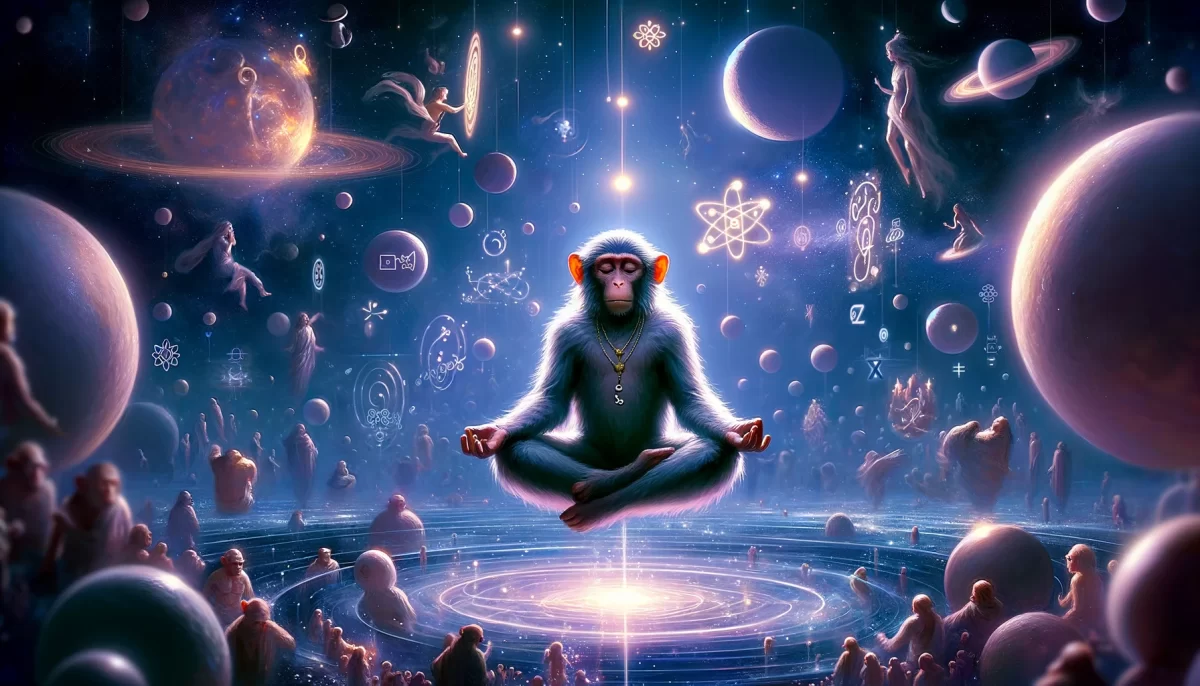
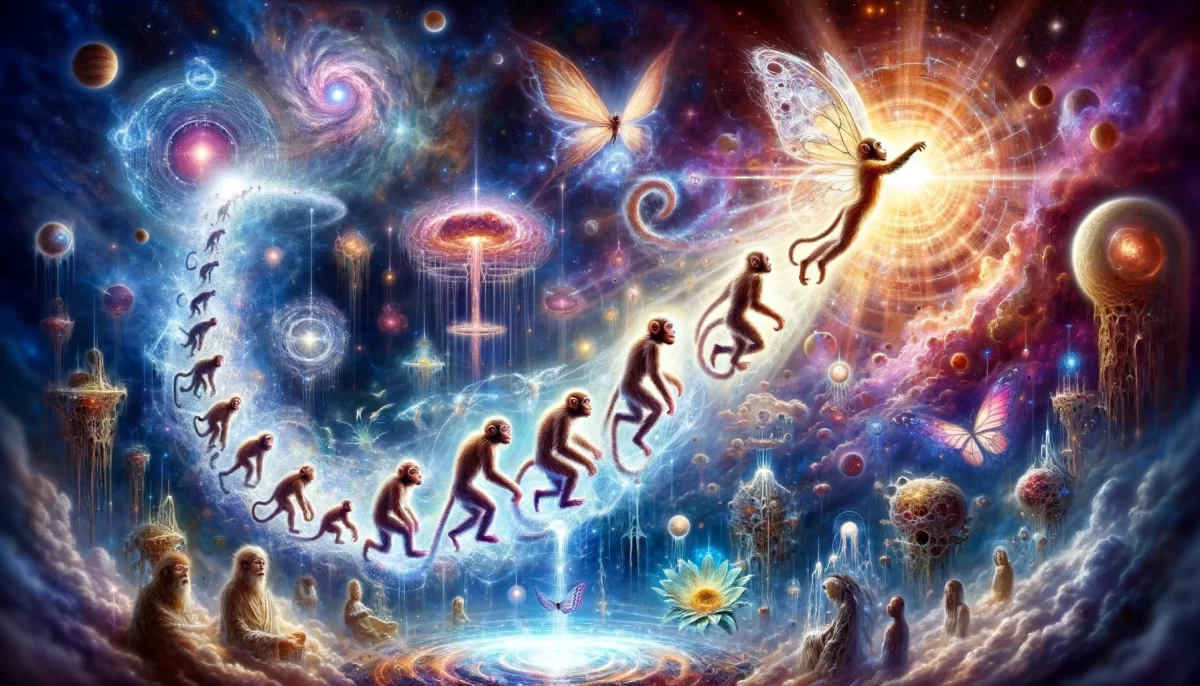
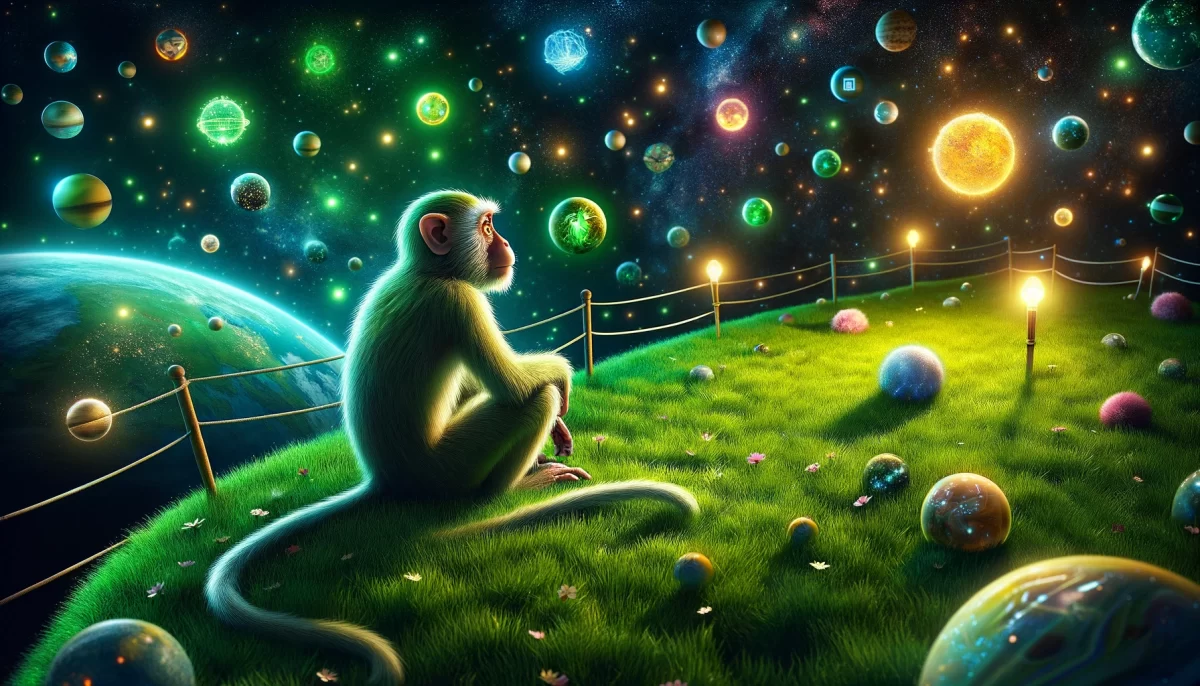
Leave a Reply